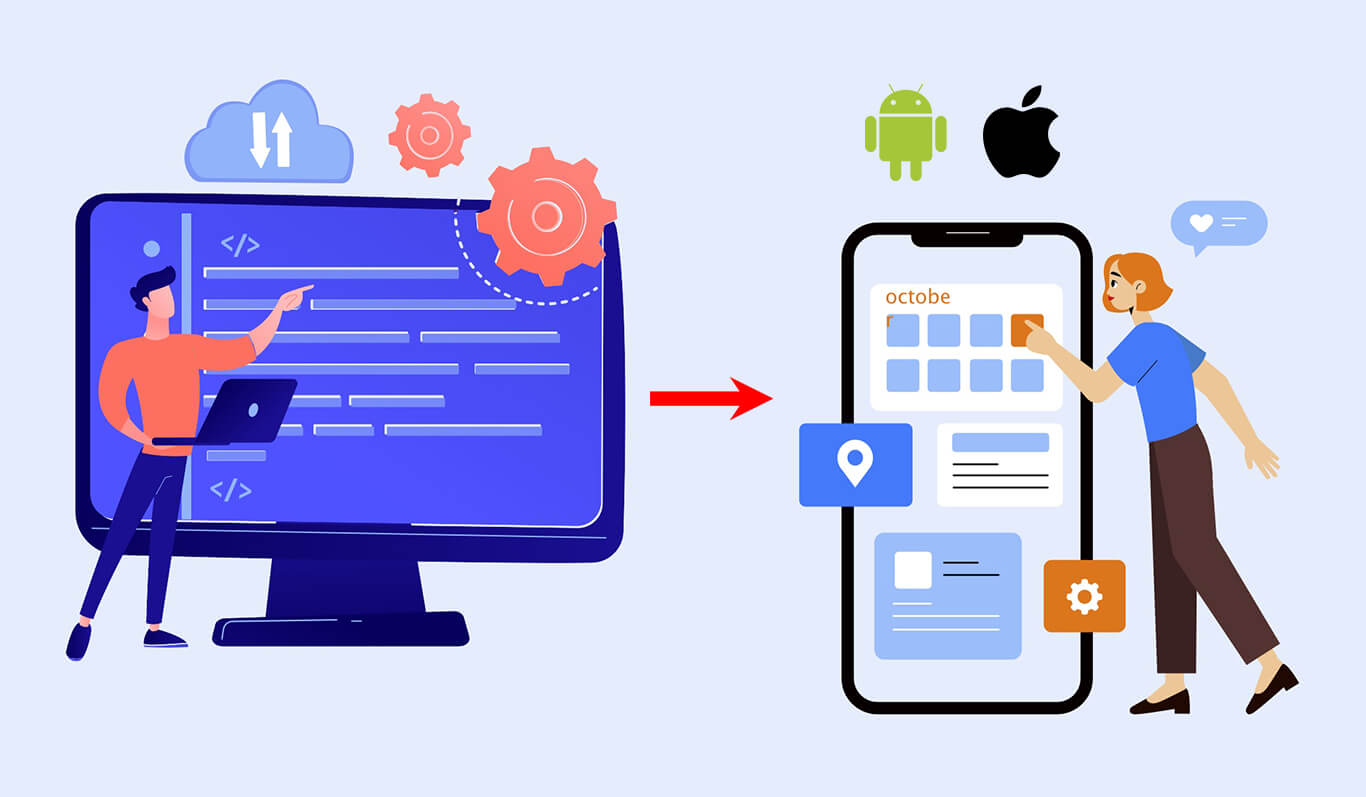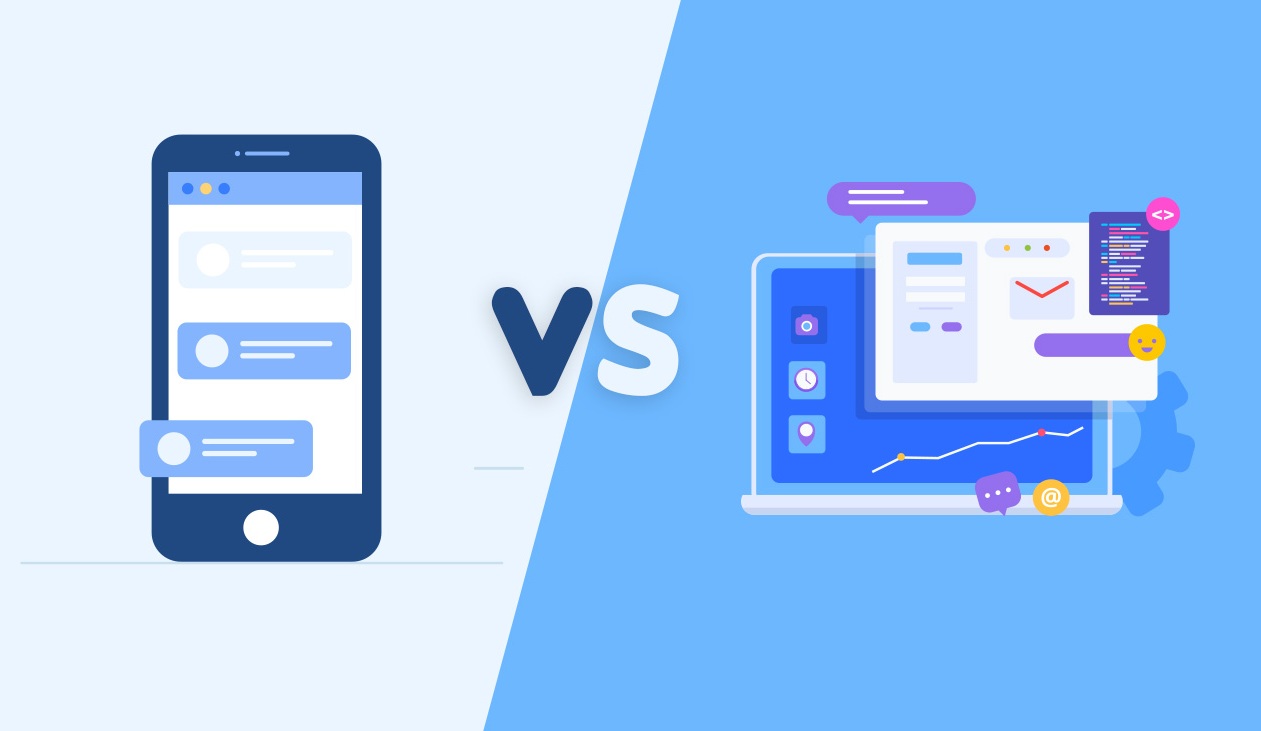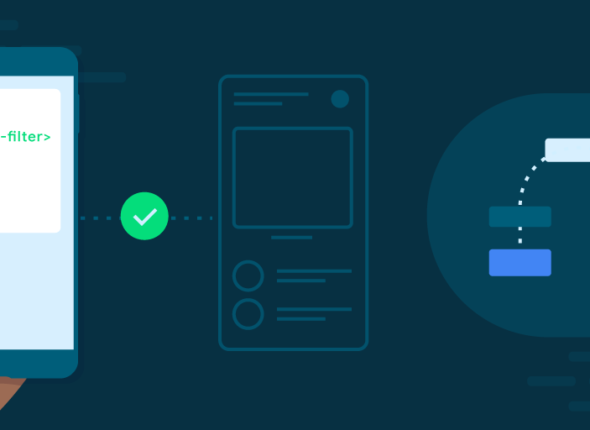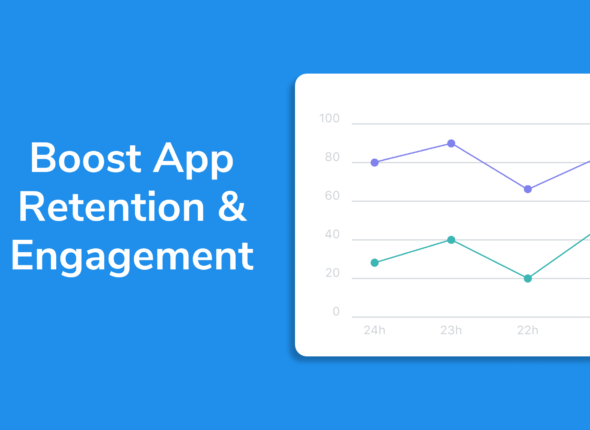Are you thinking to turn website into mobile app? Unable to understand where to start? You have certainly landed in the right place.
Over 85% of the global population now owns a smartphone. Users spend 3 hours daily on their devices. This proliferation has expanded the mobile landscape tremendously .
A responsive website design adapted for multiple screen resolutions is essential for visibility on mobile search and discovery. However, native apps offer a superior experience driving engagement further.
The Benefits of Converting Your Website to an App
Converting your website into a mobile app offers a range of significant benefits that can elevate your business’s digital strategy, improve user engagement, and drive growth. Below is a detailed exploration of these benefits:
1. Enhanced User Experience
- Tailored Design and Interface: Mobile apps are specifically designed for mobile devices, allowing for a user interface that is more intuitive and responsive compared to a mobile-optimized website. Apps can leverage native device features like touch gestures, swiping, and haptic feedback to create a more engaging and seamless user experience.
- Speed and Performance: Apps typically load faster than websites because they store data locally on the device. This reduces load times and provides a more fluid experience, especially for content-rich applications or those requiring frequent user interaction.
2. Increased User Engagement and Retention
- Personalized Content: Apps can offer personalized experiences by analyzing user behavior, preferences, and interactions. This allows you to tailor content, offers, and notifications specifically to each user, enhancing their engagement with your brand.
- Push Notifications: Unlike websites, apps can send push notifications directly to users’ devices, keeping them informed about new content, updates, promotions, and reminders. This direct communication channel can significantly boost user engagement and prompt users to revisit the app regularly.
3. Offline Functionality
- Access Without Internet: One of the key advantages of apps is the ability to offer offline access to certain features and content. While websites require an internet connection to function, apps can store data locally, allowing users to continue interacting with the app even when they are offline. This is particularly useful for apps that provide essential information, tools, or entertainment.
4. Superior Performance
- Efficient Resource Usage: Apps are generally more efficient in resource usage compared to websites. They are optimized for the operating system they run on, which means they can execute tasks more efficiently, reducing battery consumption and improving overall performance.
- Native Features Utilization: Mobile apps can integrate with native device features like the camera, GPS, microphone, and accelerometer. This integration allows for functionalities that websites cannot offer, such as augmented reality experiences, real-time location tracking, or voice commands.
5. Increased Brand Visibility and Loyalty
- Home Screen Presence: Once downloaded, your app resides on the user’s home screen, acting as a constant reminder of your brand. This visibility can lead to higher brand recall and foster stronger customer loyalty.
- Immersive Branding: Apps allow for more control over the user experience, providing opportunities to create an immersive brand environment. You can ensure that every aspect of the app, from the color scheme to the navigation flow, aligns with your brand identity and messaging.
6. Expanded Monetization Opportunities
- In-App Purchases: Apps can offer in-app purchases, which can be a significant revenue stream. Whether it’s unlocking premium content, purchasing virtual goods, or subscribing to additional services, in-app purchases provide a flexible monetization strategy.
- Advertising and Sponsorship: Apps can integrate advertisements in a way that is less intrusive and more relevant to the user experience. Additionally, partnerships and sponsorships within the app can create new revenue streams.
- App Store Exposure: By being listed on app stores like Google Play and Apple’s App Store, your app gains visibility to millions of potential users. This exposure can lead to increased downloads, especially if your app is optimized for discoverability within these platforms.
7. Enhanced Security Features
- Data Protection: Apps can offer more robust security features compared to websites, especially for handling sensitive data. Mobile operating systems provide built-in security measures such as sandboxing, encryption, and secure authentication, which can be leveraged to protect user data.
- Biometric Authentication: Apps can utilize device-specific security features like fingerprint scanning and facial recognition, providing an additional layer of security that is not typically available on websites.
8. Access to Mobile Device Features
- Integration with Native Capabilities: Apps can seamlessly integrate with various native device features such as the camera, GPS, contacts, and sensors. This integration allows for enhanced functionality, such as scanning QR codes, real-time location tracking, or using augmented reality, which can create a more interactive and engaging experience.
- Optimized User Interaction: Apps can provide more sophisticated user interactions by leveraging device-specific gestures and controls. For example, an app can offer a more intuitive shopping experience by enabling swipe-to-delete functionality or pinch-to-zoom on product images.
9. Detailed Analytics and User Insights
- In-Depth User Data: Apps can track user behavior in greater detail, providing insights into how users interact with various features, what content they engage with most, and where they drop off. This data is invaluable for optimizing the app experience and personalizing content.
- Targeted Marketing: With the detailed analytics available from mobile apps, businesses can create highly targeted marketing campaigns based on user behavior and preferences, leading to higher conversion rates and more effective marketing spend.
10. Competitive Advantage
- Market Differentiation: Having a mobile app can set your business apart from competitors who only have a web presence. It demonstrates a commitment to staying current with technology trends and provides your customers with a modern, convenient way to interact with your brand.
- Early Adoption Benefits: By adopting a mobile app strategy early, you position your business as an innovator in your industry. This can attract tech-savvy customers and build a reputation for being forward-thinking.

Importance Of Having A Mobile-Friendly Presence
The importance of having a mobile-friendly presence cannot be overstated in today’s digital world. As more people rely on smartphones and tablets for internet access, businesses must ensure their websites and online platforms are optimized for mobile use. A mobile-friendly presence enhances user experience by offering easy navigation, faster load times, and responsive design that adapts to different screen sizes. This leads to increased user engagement, higher conversion rates, and improved search engine rankings, as search engines prioritize mobile-optimized sites. Moreover, a mobile-friendly presence allows businesses to reach a broader audience, particularly younger demographics who predominantly use mobile devices. It also provides a competitive edge, ensuring that your brand remains relevant and accessible in a mobile-first world. Ultimately, having a mobile-friendly presence is crucial for driving growth, improving customer satisfaction, and staying ahead in the increasingly mobile-driven digital landscape.
Creating apps is no less than creating art.
Learn no code app development with appbanao.
.
Costing of Converting Website Into Mobile App
The cost of converting a website into a mobile app can vary based on several key factors:
1. App Complexity
- Basic App: Simple apps with basic features may cost between $5,000 and $20,000.
- Moderately Complex App: Apps with user accounts, in-app purchases, or API integration might cost between $20,000 and $50,000.
- Advanced App: Complex apps with features like real-time updates or advanced UI could cost $50,000 to $150,000 or more.
2. Platform Choice
- Single Platform: Developing for either iOS or Android costs less than developing for both.
- Cross-Platform: Using frameworks like React Native can save costs by covering both platforms simultaneously.
3. Design and User Interface
- Custom Design: Custom UI/UX design increases costs.
- Standard Templates: Using pre-built templates can reduce expenses.
4. Backend Development
- Existing Backend: Reusing your website’s backend can lower costs.
- New Backend: Significant backend changes or a new build will increase expenses.
5. Development Team
- Freelancers vs. Agencies: Freelancers may be cheaper, but agencies offer comprehensive services at a higher cost.
- In-House vs. Outsourcing: Outsourcing, especially to regions with lower labor costs, can reduce expenses.
6. Testing and Maintenance
- Basic Testing: Ensuring functionality on various devices adds to the cost.
- Ongoing Maintenance: Regular updates and support will incur ongoing expenses.
7. App Store Fees
- App Store Submission: Costs include a $99 annual fee for Apple and a $25 one-time fee for Google.
Estimated Cost Range:
- Basic App: $5,000 – $20,000
- Moderately Complex App: $20,000 – $50,000
- Advanced App: $50,000 – $150,000+
Conclusion
The cost of converting a website into a mobile app can range widely depending on various factors like app complexity, platform choice, design requirements, and the development team. It’s crucial to have a clear understanding of your needs, budget, and the desired features of your app to get an accurate estimate. Working with experienced developers and planning for ongoing maintenance can ensure that your investment in a mobile app pays off in the long run.








